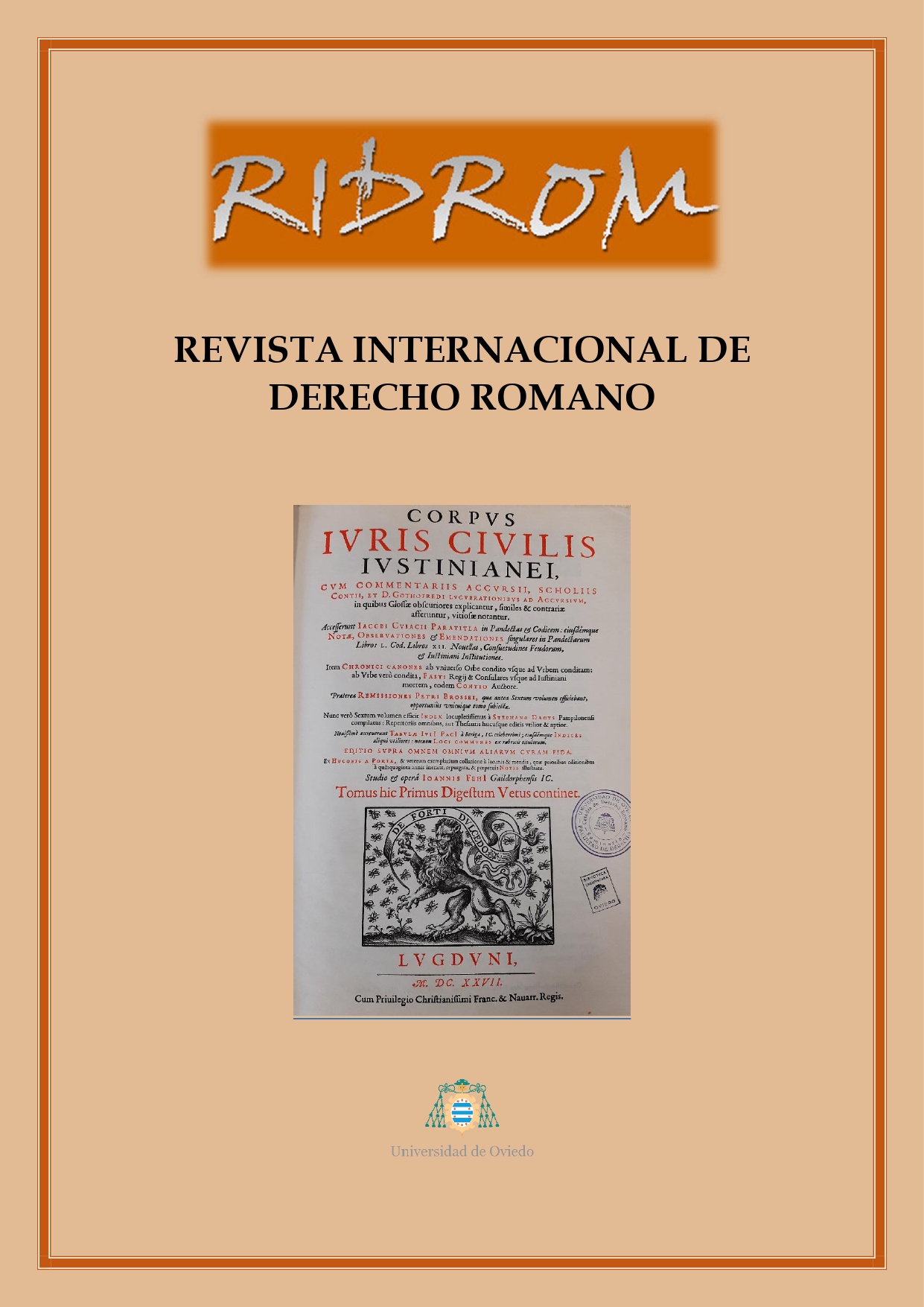Abstract
This paper is concerned with the emergence of the concept of imperitia (lack of skill) as a form of culpa (fault) in the context of the Roman contract of letting and hiring. After revisiting the state of the debate, this paper focuses on one of the many different contexts in which lack of skill is discussed in Roman juristic thought, namely the mule driver. The central question posed by this article is why mule drivers were deemed in law to be “skilled” workers and how this assessment fits into the Roman jurists’ assessment of lack of skill as a form of fault.
Riferimenti bibliografici
BIBLIOGRAPHY
Ando, Clifford, and William P. Sullivan. The Discovery of the Fact. Ann Arbor: University of Michigan Press, 2020.
Babusiaux, Ulrike. ‘The Future of Legal History: Roman Law’. American Journal of Legal History 56 (2016): 6–11. https://heinonline.org/HOL/P?h=hein.journals/amhist56&i=8
Easterbrook, Frank H. ‘Abstraction and Authority’. The University of Chicago Law Review 59, no. 1 (1992): 349.
https://heinonline.org/HOL/P?h=hein.journals/uclr59&i=355
Israelowich, Ido. ‘Professional Liability and Forensic Science in the Context of the Lex Aquilia’. The Journal of Legal History 41 (2020): 60–77. https://search-ebscohost-com.ezproxy.is.ed.ac.uk/login.aspx?direct=true&db=hlh&AN=142200020&site=ehost-live
Jackson, Bernard S. ‘Liability for Animals in Roman Law: An Historical Sketch’. The Cambridge Law Journal 37 (1978): 122–43. https://heinonline.org/HOL/P?h=hein.journals/camblj37&i=140
Martin, Susan. ‘The Case of the Collapsing Watercourse: Builders’ Responsibility for Damage in Classical Roman Law’. Law and History Review 4 (1986): 423–37. https://heinonline.org/HOL/P?h=hein.journals/lawhst4&i=429
Martin, Susan D. ‘Imperitia: The Responsibility of Skilled Workers in Classical Roman Law’. The American Journal of Philology 122 (2001): 107–29. https://shibbolethsp-jstor-org.ezproxy.is.ed.ac.uk/startentityID=https%3A%2F%2Fidp.ed.ac.uk%2Fshibboleth&dest=https://www.jstor.org/stable/1562022&site=jstor
Martin, Susan D. ‘Servum Meum Mulionem Conduxisti: Mules, Muleteers and Transportation in Classical Roman Law’. Transactions of the American Philological Association (1974-) 120 (1990): 301–14. https://shibbolethsp-jstor-org.ezproxy.is.ed.ac.uk/startentityID=https%3A%2F%2Fidp.ed.ac.uk%2Fshibboleth&dest=https://www.jstor.org/stable/283993&site=jstor
Nasti, Fara, and Aldo Schiavone. Jurists and Legal Science in the History of Roman Law. Routledge & CRC Press.
Spagnolo, B. J., and Joe Sampson. Principle and Pragmatism in Roman Law / Edited by Benjamin Spagnolo and Joe Sampson. Oxford, U.K.; Hart Publishing, an imprint of Bloomsbury Publishing, 2020.
Wacke, Andreas. ‘Bruchschäden an Diatretglass Und Gemme : Gefahrtragungsklauseln Im Römischen Kunsthandwerk’. Mélanges En l’honneur de Carlo Augusto Cannata : Cannata, Carlo A. [Festschrift], 1999, 91–104.
Zimmermann, Reinhard. ‘Savigny’s Legacy. Legal History, Comparative Law, and the Emergence of a European Legal Science’. The Law Quarterly Review 112 (1996): 576–605. https://uk.westlaw.com/Document/I6F2B3B30E71311DA915EF37CAC72F838/View/FullText.html

Questo lavoro è fornito con la licenza Creative Commons Attribuzione - Non commerciale - Non opere derivate 4.0 Internazionale.
Copyright (c) 2022 Paul du Plessis

